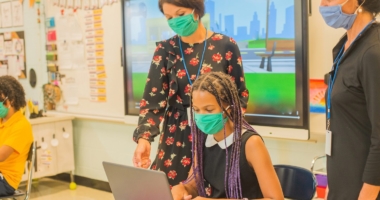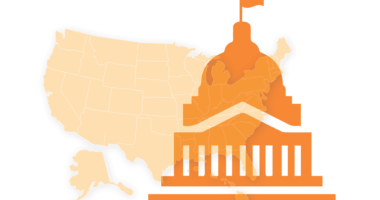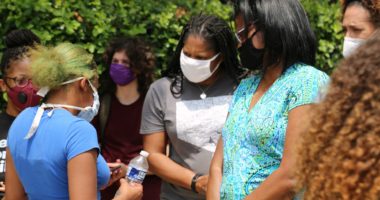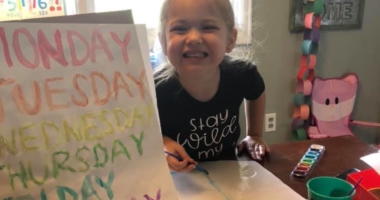Holding Students Back: Is Grade Retention Really Necessary During the Pandemic?
When I taught high school English, many students entered my classroom reading several grade levels below ninth grade. This meant that I was adjusting my lesson plans to teach skills students should have mastered in seventh grade or earlier. At times, it felt daunting, but my students and I took on that challenge every day. Despite the difficulties of addressing unfinished learning throughout the school year, my students and I worked hard to accelerate their learning by trying to catch up while learning new grade-level concepts. Most of the time, we did this without effective evidence-based supplemental supports, like targeted intensive tutoring.
I understand the harm that can be done to students who are only offered remediation or who are held back when they do not master grade-level concepts by the end of the academic year. Often, those students did not receive the supplemental supports they needed beyond the elementary and middle school curriculum. Holding students back is not the solution. This is why Ed Trust released a brief outlining the research and policy implications of grade retention.
The practice of holding students back has not been shown to be effective, particularly for Black and Latino students, who were also less likely to have consistent access to learning resources and opportunities and more likely to have experienced family member or friend loss during the pandemic.
Moreover, administrators and parents overwhelmingly do not support holding students back in response to the pandemic, even in some states where parents were given easier access to make these decisions for their families. Instead of retaining students, districts must provide students and educators support in accelerating learning through evidence-based practices like extending the learning day, providing targeted intensive tutoring, and developing strong relationships.
Despite research showing retention to be costly and ineffective without sufficient supports, the practice has been in use for nearly 20 years. Most states did not adjust retention laws during the COVID-19 pandemic. In fact, some states began adopting them in response to the pandemic, even as students and educators across the country have contended with unfinished learning.
Many of these laws require grade retention solely based upon students’ performance on reading assessments. While no educator wants to promote a student who is unprepared, the practice of using a single assessment as the sole metric of success does not capture students’ assets, persistence, lived experiences, and the significant progress made to fill knowledge gaps while learning new content.
Assessment results should be used alongside data from multiple measures to allocate additional resources to schools, identify where students need additional support, and shine a light on inequities rather than forming the entire basis of decisions to hold students back.
Recent data shows that students in grades 3-5 experienced lower growth rates on math and reading assessments in the 2020-2021 school year. While these students and their educators must address unfinished learning, students should not be made to redo entire years’ worth of content, be isolated from their peers, or receive decreased access to grade-level content. I know firsthand that for a teacher, trying to catch a student up is incredibly difficult, and the pandemic has created many more challenges for both teachers and students alike.
While all students have faced tremendous disruption to in-person learning, students from low-income backgrounds and Black, Latino, and Native students have always borne the brunt of the educational inequities that COVID-19 brought to light for many. Rather than holding students back, states and districts should invest resources in ensuring all students have access to accelerated learning opportunities and that teachers have significant support in implementing them.
Read the grade retention brief.
Brittney R. Davis is a Ph.D. candidate in the community well-being program at the University of Miami. She taught high school in Washington DC and Houston, and has worked in numerous educator capacities in Virginia, Florida, and internationally.










